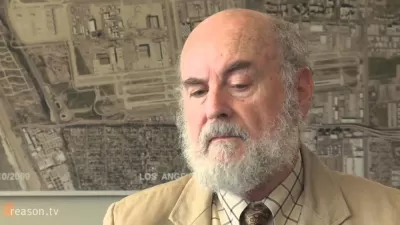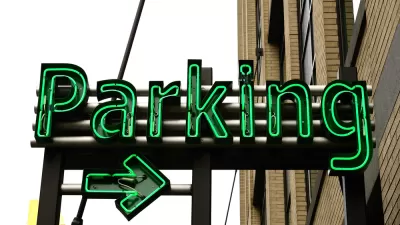Edmonton, Alberta could be the first major Canadian city to eliminate parking minimums citywide—an ambitious and notable step for all North American cities.

"For city-builders across North America, all eyes will be on Edmonton, Alberta, Canada this summer as they look to eliminate off-street parking minimums city-wide, making Edmonton the first major Canadian municipality to do so," according to an article by Ashley Salvador.
According to Salvador, founder of the Canada Backyard Housing Association, Edmonton might not seem like the first candidate for such a sweeping, progressive reform of land use regulations, but the city is young and entrepreneurial, and its political leadership can see the sense in parking reform. Salvador also credits the progress of the idea to planners in the city:
A talented team of city planners has been slowly chipping away at parking minimums for years, beginning with reductions to minimum requirements. The opportunity to remove minimums city-wide comes after extensive working on establishing a shared vision for a more sustainable, compact, and healthy city.
As for specifics, Salvador notes the novelty in the city considering a citywide reversal of parking minimums, rather than a zoned approach that would reform parking regulations only in a few parts of the city.
Salvador's article works to build the case for parking reform, treading in the footsteps of Donald Shoup, and to announce Edmonton's leadership role to a larger audience of urbanists and planners. For news coverage of the city of Edmonton's progress in the effort so far, see also an article by Dustin Cook from January 2020.
FULL STORY: Will Edmonton Be the First Major Canadian City to Eliminate Parking Minimums?

Planetizen Federal Action Tracker
A weekly monitor of how Trump’s orders and actions are impacting planners and planning in America.

Maui's Vacation Rental Debate Turns Ugly
Verbal attacks, misinformation campaigns and fistfights plague a high-stakes debate to convert thousands of vacation rentals into long-term housing.

San Francisco Suspends Traffic Calming Amidst Record Deaths
Citing “a challenging fiscal landscape,” the city will cease the program on the heels of 42 traffic deaths, including 24 pedestrians.

Amtrak Rolls Out New Orleans to Alabama “Mardi Gras” Train
The new service will operate morning and evening departures between Mobile and New Orleans.

The Subversive Car-Free Guide to Trump's Great American Road Trip
Car-free ways to access Chicagoland’s best tourist attractions.

San Antonio and Austin are Fusing Into one Massive Megaregion
The region spanning the two central Texas cities is growing fast, posing challenges for local infrastructure and water supplies.
Urban Design for Planners 1: Software Tools
This six-course series explores essential urban design concepts using open source software and equips planners with the tools they need to participate fully in the urban design process.
Planning for Universal Design
Learn the tools for implementing Universal Design in planning regulations.
Heyer Gruel & Associates PA
JM Goldson LLC
Custer County Colorado
City of Camden Redevelopment Agency
City of Astoria
Transportation Research & Education Center (TREC) at Portland State University
Jefferson Parish Government
Camden Redevelopment Agency
City of Claremont





























